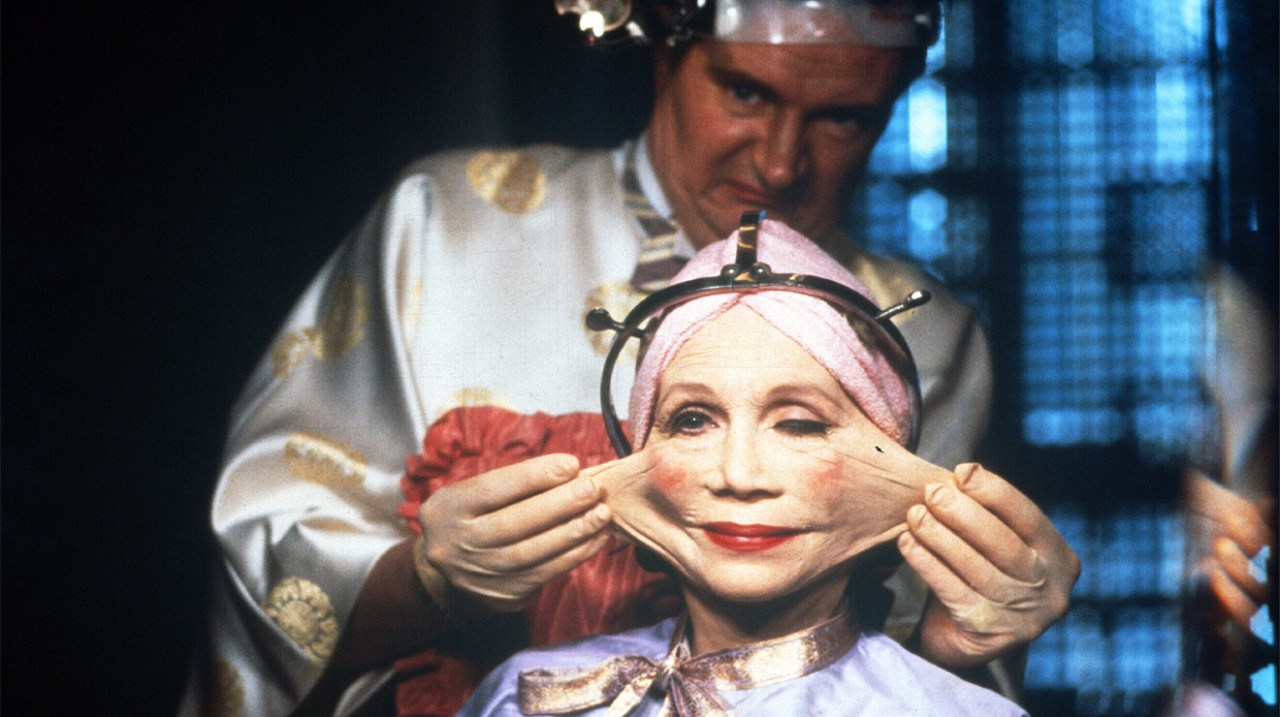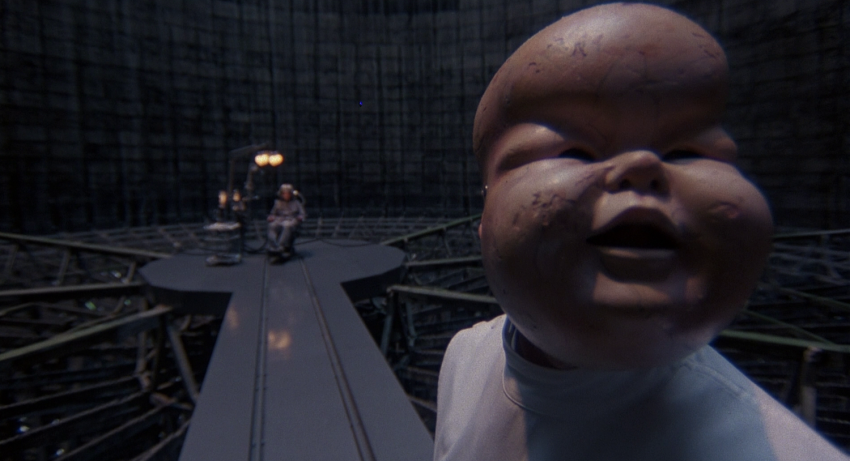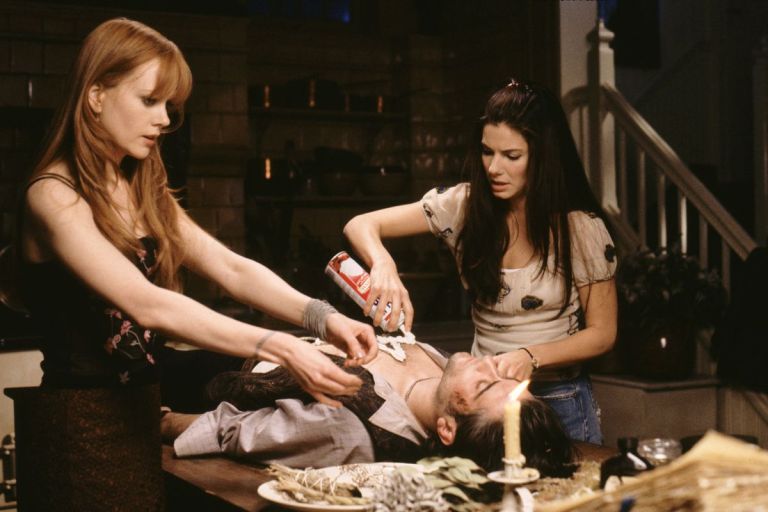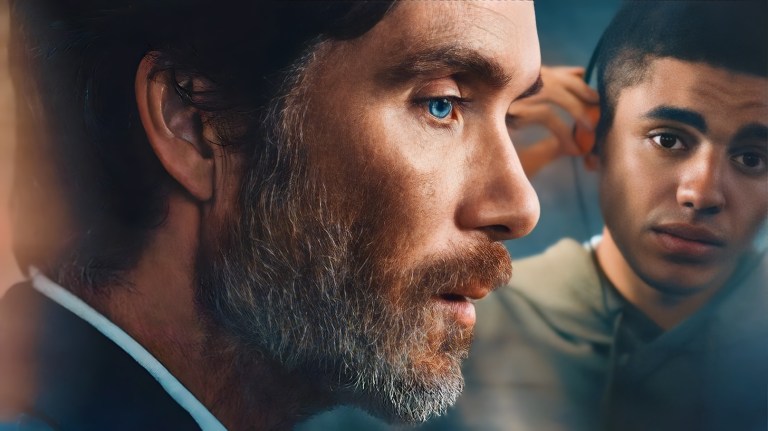
Watch This Movie To Escape The Absurdity Of Adulthood
It's just weird enough that it'll make you forget about all those annoying things you need to do.
It’s fair to say all of us get tired of dealing with the crushing weight of adulthood at one time or another.
Whether it’s facing the mountain of bills piling up on our counter or failing to secure the long-waited raise or promotion at work that we rightfully deserve, the problems of waking life can certainly be difficult, requiring constant care, attention, and focus in order to safely navigate.
Of course, the headaches of the modern world have seemingly never been more challenging, from the rising cost of groceries to the turmoil gripping international politics on an almost weekly basis. (And that’s not even factoring in the constant fears over artificial intelligence or all-powerful tech companies present in every facet of our lives.)
With all this being said, sometimes it’s nice to safely detach from reality with the help of a spellbinding movie. And at the end of the day, few films are able to help viewers escape the pressures of adulthood than 1985’s legendary cult film, Brazil.
A Kafkaesque Sci-Fi Comedy Unlike Any Other

Co-written and directed by Terry Gilliam of Monty Python fame, Brazil explores a technology-obsessed futuristic world straight out of Franz Kafka or George Orwell’s darkest imagination. In a grim dystopia overseen by a totalitarian government, low-level government bureaucrat Sam Lowry (Jonathan Pryce) finds himself involved in a chaotic conspiracy involving a mysterious woman (Kim Greist) and a rogue handyman/suspected political dissident (Robert De Niro).
Plagued by his ever-active imagination, Sam soon enters the confusing, murky underside of his terrifying surroundings, blurring the lines between his vivid dreams and nerve-wracking reality as he struggles to make sense of his extraordinary situation.
If you can, just picture a dystopian sci-fi comedy as reimagined by Monty Python, and you essentially have the plot and underlying premise behind Brazil. A masterpiece of British filmmaking, it’s often heralded as one of the best films of the 20th century, with everyone from Edgar Wright to Guillermo del Toro to Rian Johnson listing it among their favorite movies ever made.
So what is it that makes Brazil so undeniably captivating even now, over four years later? Is it the unique sense of imagination prevalent throughout the film, including the ‘50s-style apparel, the whimsical, often malfunctioning machines, and the unwaveringly surreal architectural design? Is it the clever social and political satire at the heart of the movie’s narrative, as seen through its cautionary depiction of a surveillance-based government and the constant threat of terrorist attacks? Or maybe it’s the not-entirely-ridiculous emphasis the movie places on the dangers of unchecked consumerism, an obsession with remaining youthful and trendy, and acquiring the latest “fashionable” technology of the day?
In the end, the answer to the question is simple. Like all the best movies, it’s all of these qualities and more that make Brazil the undeniable classic it is, with each passing year seeming to push us one step closer to the nightmarish dystopia of the film’s narrative.
The Severance of Its Day and Age
Nowadays, it’s safe to say Brazil occupies its own place in contemporary pop culture, bearing plenty of similarities to The Trial, 1984, and Brave New World, yet existing in its own absurdist little bubble, not unlike some of Gilliam’s other films like Time Bandits, The Adventures of Baron Munchausen, or even Monty Python and the Holy Grail.
In spite of its unparalleled creativity and vivid sense of imagination, however, it’s also easy to spot Brazil’s clear influence on other like-minded media that followed in its wake, most especially movies like Office Space and recent TV series like Apple TV+’s Severance.
Yet it’s important to note that it’s not all doom and gloom in this exceptional 1985 sci-fi adventure comedy. Yes, most of the film does operate under a grim sense of humor underscoring how frustrating, tedious, and often bizarre the rules of bureaucracy, government, and modern society can be. But it also demonstrates a keen comedic style that advocates personal self-reliance in the face of overwhelmingly opposing odds.
Take, for example, Jill Layton’s (Greist) well-meaning crusade to help her unfortunate neighbors, whose husband is wrongfully arrested and murdered in police custody owing to a tiny hiccup in the government’s filing system. Or De Niro’s freelance heating specialist Harry Tuttle, who resorts to unauthorized handyman repairs due to his frustration with slow-moving bureaucratic red tape. Or even Sam’s own journey from an easily-distracted office drone into an unexpected rebel in the making.
At the end of the day, Brazil stresses that imagination means personal freedom – something that even the most boring jobs, controlling governments, probing tech companies, or questionable plastic surgeon specialists can obtain, no matter how hard they try. And when times get tough, it’s all right to escape into our daydreams, allowing us a momentary reprieve from whatever obstacles are currently upending our lives.











